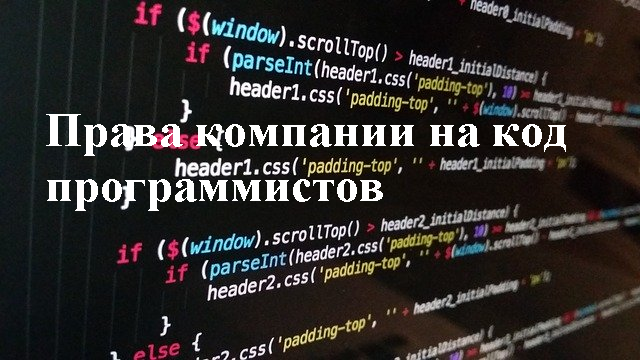
Colleagues found a fresh case that perfectly illustrates the need to formalize the rights to the employee code before the onset of conflict ( Resolution of the Intellectual Property Rights Court of 08/01/2019 in case No. A40-202764 / 2018 ).
I have repeatedly written about the importance of formalizing rights to the results of intellectual activity. For software developers, the main risks arise in disputes over software code rights with former employees.
Often, having funded the creation of a software product, the company is left with nothing, acquiring new competitors in the person of former programmers and employees. Let us illustrate on a specific case what the employer's main mistake in registering rights to the “program code” is.
Case study under the cut.
The main message of the Resolution of the SIP from 08/01/2019 in the case No. A40-202764 / 2018
The case materials do not contain documents confirming the presence of a job (technical task), evidence of the creation of the program in a certain period of time, by certain entities, acts of acceptance-transfer of a work of work and other documents attesting to the creation of the program as part of the performance of labor duties
Many employers are sure that it is enough to conclude an employment contract with a programmer, and from now on everything that he does not create at work will belong to the employer. But this is not so.
As a rule, full-time programmers have external projects, and many write code in their free time (including during the lunch break at work).
So how do you separate service programs from unofficial ones? The employer needs to take care of this issue, since initially all rights to the work belong to the author (Article 1228 of the Civil Code of the Russian Federation). Therefore, the employer must document that the work is official. How to do it?
For software as a work to become official, the employer must complete a set of measures:
- Conclude an employment contract with the programmer that provides for payment for labor along with payment of remuneration for the results of intellectual activity;
- To familiarize the employee with the job description of the programmer, writing in her job responsibilities corresponding to the knowledge and skills you need;
Sign an agreement on the distribution of rights to official works, securing the rights to all created programs for the employer and prescribing the procedure for calculating and paying royalties (since, in accordance with clause 2 of article 1295 of the Civil Code of the Russian Federation, the employee has the right to remuneration for the transferred rights) ;
To familiarize the programmer with the Rules for the setting of official tasks (tasking is also possible in electronic form, if the parties agree on this);
To complete the task for creating each program and introduce the programmer to this task;
Since the programmer gets access to valuable information in the process of creating the program, it is also necessary to take measures to maintain the confidentiality of the information received by the programmer (adopt the Regulation on trade secrets, sign non-disclosure obligations, etc.). Subsequently, this will protect not only the final product, but also restrict access to intermediate versions of the product, other information obtained during the development of the program.
In case of registration of the program with Rospatent, the authors should also be indicated in the application documentation (except when they refused to mention). The presence of the signatures of the authors in the application documentation will serve as additional evidence of the recognition of your rights to the program on their part.
The adoption of these measures together will allow to prove that the created software product is official, and its use by the employee without your permission is to hold the latter accountable.
Otherwise, the development will “go away”, as happened in case No. A40-202764 / 2018 of 08/01/2019, where the quitters created their own company and transferred the rights to the program to it, and the employer could not prove that the program was created as part of labor duties.